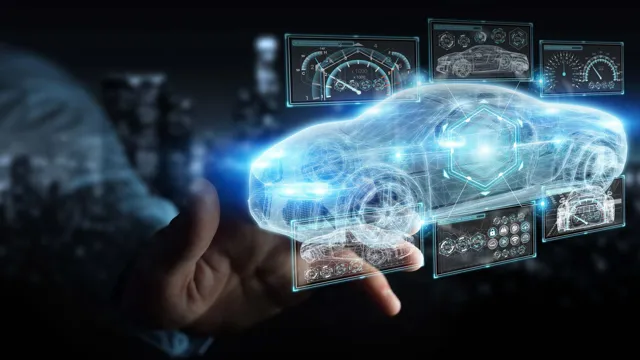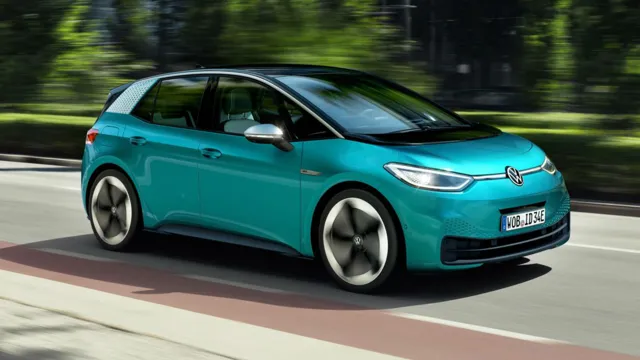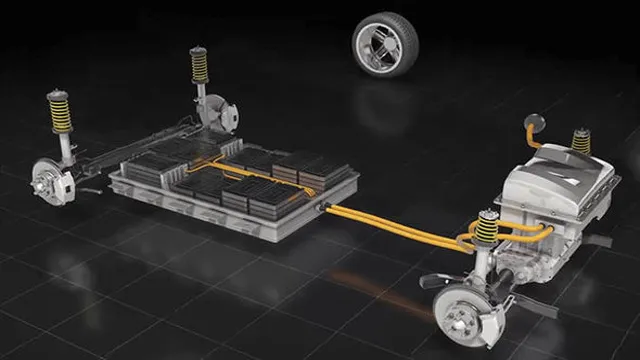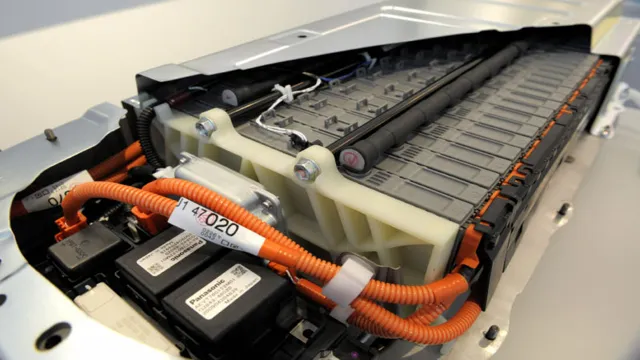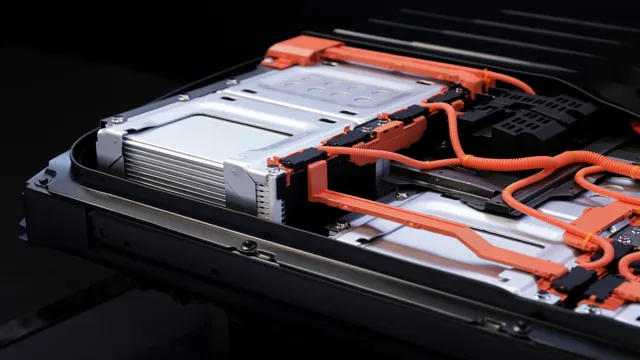Revolutionizing the Roads: The Latest Advancements in Electric Car Battery Technology
Electric car battery technology has come a long way in a relatively short amount of time. In just a decade, the batteries that power electric vehicles have gone from heavy and expensive to lightweight and affordable, with ranges that can match or exceed those of traditional gas-powered cars. But what exactly is electric car battery technology, and how does it work? In this blog, we’ll dive into the fascinating world of electric car batteries, exploring how they’re made, how they work, and what the future holds for this exciting technology.
So whether you’re an EV enthusiast or a curious skeptic, join us as we take a deep dive into the heart of the electric car revolution!
Overview of Electric Car Batteries
Electric car battery technology has come a long way in recent years. As the world moves toward a more sustainable future, many automakers have invested heavily in developing efficient and durable batteries for their electric vehicles. Today’s electric car batteries use lithium-ion technology and are designed to provide extended ranges, faster charging times, and increased durability.
These advanced batteries are built to withstand extreme temperatures and conditions, making them ideal for use in electric vehicles. While electric car batteries are still relatively expensive, the cost is expected to decrease as more automakers invest in technology and production methods. With a greater emphasis on sustainability and energy efficiency, electric car battery technology is quickly becoming the future of transportation.
Types of Electric Car Batteries
Electric car batteries are the main power source for electric vehicles, providing the necessary energy to drive the electric motor. There are several types of electric car batteries available on the market, each with its unique features and benefits. The most common types of electric car batteries are Lithium-ion, Nickel-metal hydride, and Lead-acid batteries.
Lithium-ion batteries are the most popular type of battery due to their high energy density, fast charging, and long lifespan. Nickel-metal hydride batteries are less efficient and have a lower energy density than Lithium-ion batteries, but they are more affordable and have better heat tolerance. Lastly, Lead-acid batteries are the least expensive type of electric car battery, but they have a lower energy density, shorter lifespan, and are heavy.
In summary, the type of electric car battery used depends on the vehicle’s range, performance, and cost.
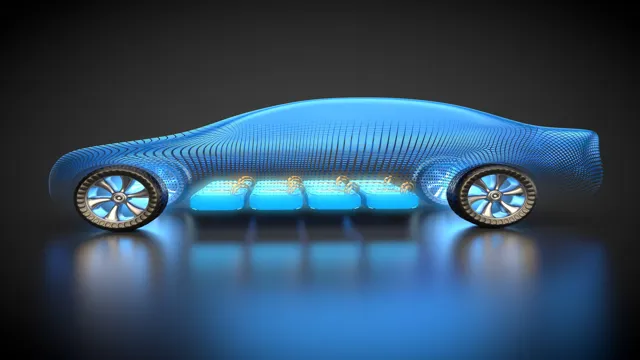
Advantages of Electric Car Batteries
Electric Car Batteries Electric car batteries have revolutionized the automotive industry. They come with a vast array of advantages, making electric cars a more sustainable and affordable option for consumers. For one, electric car batteries release zero emissions, which helps to reduce air pollution and greenhouse gas emissions.
They are also more energy efficient than traditional cars, meaning that they require less energy to move the vehicle, which leads to an increase in overall fuel economy. Additionally, electric car batteries last longer and require less maintenance than traditional car batteries, which can save owners hefty repair bills in the long run. Furthermore, these batteries can be charged at home, which is both convenient and cost-effective.
With all these benefits, it’s no wonder why electric car batteries are becoming more popular across the world, and as more and more people become aware of their advantages, the use of electric cars is expected to continue growing.
Battery Life and Performance
Electric car battery technology has come a long way in recent years, providing improvements in both battery life and performance. New advancements in battery chemistry and design have allowed electric vehicles (EVs) to travel longer distances on a single charge and offer faster charging times. One example of this is the use of solid-state batteries, which offer higher energy density and improved thermal stability.
This means that EVs can travel further on a single charge, while also being able to recharge more quickly. Additionally, manufacturers are implementing improved battery management systems that help extend the life of the battery and improve overall performance. As the demand for EVs increases, the technology behind electric car batteries will continue to improve, making them an even more viable and attractive option for many drivers.
Factors Affecting Battery Life
Battery Life and Performance Battery life is a crucial factor to consider when purchasing any device that runs on batteries, such as a smartphone, laptop, or tablet. The battery life of each device can vary significantly depending on several factors. First, the device’s usage and workload play a significant role in determining battery life.
Running intensive apps and using high-resolution settings can drain the battery faster. Second, the age and condition of the battery itself can affect battery life. Older batteries tend to hold less charge and can cause the device to shut down unexpectedly.
Third, environmental factors such as temperature can also have an impact on battery life. High temperatures can cause the battery to operate less efficiently, leading to shorter life. Finally, battery life can be extended by minimizing the device’s screen brightness, disabling unnecessary features, and using a power-saver mode.
In conclusion, battery life is a crucial factor to consider when selecting any electronic device. Keeping in mind the various factors that impact battery life can help extend the device’s runtime and performance.
How to Maximize Battery Performance
Battery life is a common concern for smartphone users. The last thing you want is for your device to die halfway through the day. Luckily, there are ways to maximize your battery performance and get the most out of your device.
The first step is to optimize your settings. Turn off any unnecessary features, such as GPS and Bluetooth, and lower your screen brightness. This can significantly increase your battery life.
Additionally, it’s important to close any unused apps running in the background. These apps can drain your battery even when you’re not using them. Finally, consider investing in a portable charger or battery case.
This will ensure that you always have a backup source of power when you need it. With these tips, you can maximize your battery performance and enjoy your device for longer periods of time without having to worry about constantly recharging it.
Comparison with Traditional Car Batteries
Compared to traditional car batteries, the lifespan and performance of lithium-ion batteries greatly surpasses them. While traditional lead-acid batteries can last up to three to five years if properly maintained, they lack the durability and efficiency of lithium-ion batteries. Lithium-ion batteries can last up to eight to ten years and have a higher discharge rate, meaning they provide more power and last longer when used frequently.
This makes them a better choice when it comes to powering electric vehicles or other devices that require consistent, high-performance power. With a lithium-ion battery, you can avoid frequent battery replacements and enjoy longer, more efficient use. Plus, lithium-ion batteries are lighter and more compact, making them easier to transport and a more suitable option for mobile applications.
In summary, the lifespan, performance, and overall benefits of lithium-ion batteries make them the superior choice when compared to traditional car batteries.
Future of Electric Car Battery Technology
Electric car battery technology has rapidly evolved over the years, and its future looks promising. The development of new battery chemistries, such as solid-state batteries, promises to address the issues of range anxiety and long charging times. Solid-state batteries are lighter, safer, and can store more energy than lithium-ion batteries.
This means that electric cars could travel further on a single charge and recharge faster. Furthermore, the use of recycled materials and advanced battery management systems will help reduce the environmental impact of electric cars. With the introduction of wireless charging and other innovative technologies, electric car batteries could soon become as convenient to use as traditional gasoline cars.
The future of electric car battery technology looks bright, and we can expect to see significant advances in the coming years.
Innovations and Advancements
The future of electric car battery technology is looking brighter than ever before, with promising advancements on the horizon. One such innovation is solid-state batteries, which use a solid electrolyte instead of a liquid, allowing for higher energy density and lower weight. Another development is the use of silicon in lithium-ion batteries, which could double their energy density and significantly increase their lifespan.
Additionally, companies are exploring the use of recycling and closed-loop systems to address the issue of battery waste. These advancements not only increase the range and efficiency of electric cars but also make them more sustainable and eco-friendly. As a result, electric cars will become more accessible to a wider range of consumers and will help us move towards a greener future.
Impact on the Automotive Industry
The automotive industry has been facing significant changes in recent years. With growing concerns about the environment, there is an increasing need for sustainable and eco-friendly technology in the automobile sector. This has led to a shift towards electric vehicles, and the battery technology that powers them is a critical factor.
The future of electric car battery technology is promising. Research and development in this field have led to significant improvements in recent years, such as increased energy density, longer battery life, and faster charging times. These developments have made electric cars a more viable and attractive option for mainstream consumers.
The impact of these advancements is far-reaching, affecting not only the automotive sector but also the global economy and the environment. As the technology improves, it will become cheaper and more accessible, lowering the cost of electric cars and making them a more practical option for everyone. But despite the progress, there is still work to be done.
Battery technology is still relatively expensive compared to traditional internal combustion engines, and mass adoption of electric cars is dependent on battery prices coming down. However, given the current trajectory of battery development, it’s just a matter of time before they become more affordable and widely available. In conclusion, the future of electric car battery technology looks bright.
As the technology continues to improve and become more accessible, the world can look forward to a cleaner, more sustainable, and greener future powered by electric vehicles. By investing in this technology now, we can create a better future for generations to come.
Conclusion: Why Electric Car Batteries Matter
In conclusion, electric car battery technology is the spark that ignites the future of clean transportation. With advancements in battery materials and chemistry, the energy storage capacity of electric vehicles has reached unprecedented levels, allowing for longer ranges and faster charging times. It’s clear that the electric revolution is charging ahead and soon the combustion engine will be as outdated as the Flintstones’ stone-wheeled car.
So, if you’re looking to make a sustainable choice for the environment and your wallet, it’s time to recharge your perspective and join the electric car movement!”
FAQs
What is electric car battery technology?
Electric car battery technology is the technology used to power electric vehicles by using rechargeable batteries.
What are the benefits of electric car battery technology?
Electric car battery technology has several benefits such as reduced dependence on fossil fuels, lower emissions, and lower maintenance costs.
How does electric car battery technology work?
Electric car battery technology works by storing electrical energy in rechargeable batteries, which is used to power an electric motor that propels the vehicle.
What are the different types of electric car battery technology?
The different types of electric car battery technology include Lithium-Ion, Nickel-Metal Hydride, and Lead-Acid batteries. These batteries vary in terms of energy density, cost, and lifespan.
